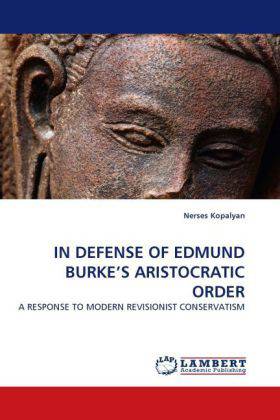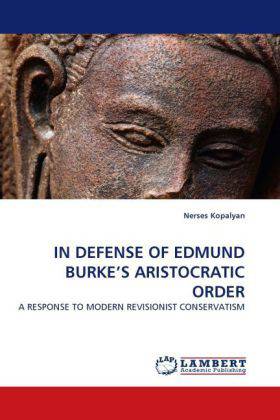
- Afhalen na 1 uur in een winkel met voorraad
- Gratis thuislevering in België vanaf € 30
- Ruim aanbod met 7 miljoen producten
- Afhalen na 1 uur in een winkel met voorraad
- Gratis thuislevering in België vanaf € 30
- Ruim aanbod met 7 miljoen producten
Zoeken
IN DEFENSE OF EDMUND BURKE'S ARISTOCRATIC ORDER
A RESPONSE TO MODERN REVISIONIST CONSERVATISM
Nerses Kopalyan
Paperback | Engels
€ 79,45
+ 158 punten
Omschrijving
This book disputes the widely-held view of Edmund Burke as the wellspring and the source of modern conservatism, arguing that Burke's defense of the aristocratic order and his distinct conservatism makes his political thought incompatible with the visions of contemporary conservatism. Author presents a defense of Burke's political philosophy against contemporary conservative scholars who have revised the originality of Burke's thought in order to mold him into a modern conservative. It is argued that Burke's conservatism is embedded in his defense of the existing institutions of the social order and his use of such conceptual tools as historicism, tradition, prescription, and prudence to justify this defense. Furthermore, author demonstrates the revisionist tendencies of modern conservatives and their attempt to marginalize Burke's appeal to the aristocratic order as an intrinsic part of Burke's conservatism. Finally, the fundamental differences between Burke's conservatism and those of the revisionists are explored, demonstrating that Burke's conservatism is antithetical to the claims of contemporary revisionists conservatism.
Specificaties
Betrokkenen
- Auteur(s):
- Uitgeverij:
Inhoud
- Aantal bladzijden:
- 140
- Taal:
- Engels
Eigenschappen
- Productcode (EAN):
- 9783843375436
- Verschijningsdatum:
- 17/11/2010
- Uitvoering:
- Paperback
- Afmetingen:
- 150 mm x 8 mm
- Gewicht:
- 204 g

Alleen bij Standaard Boekhandel
+ 158 punten op je klantenkaart van Standaard Boekhandel
Beoordelingen
We publiceren alleen reviews die voldoen aan de voorwaarden voor reviews. Bekijk onze voorwaarden voor reviews.







